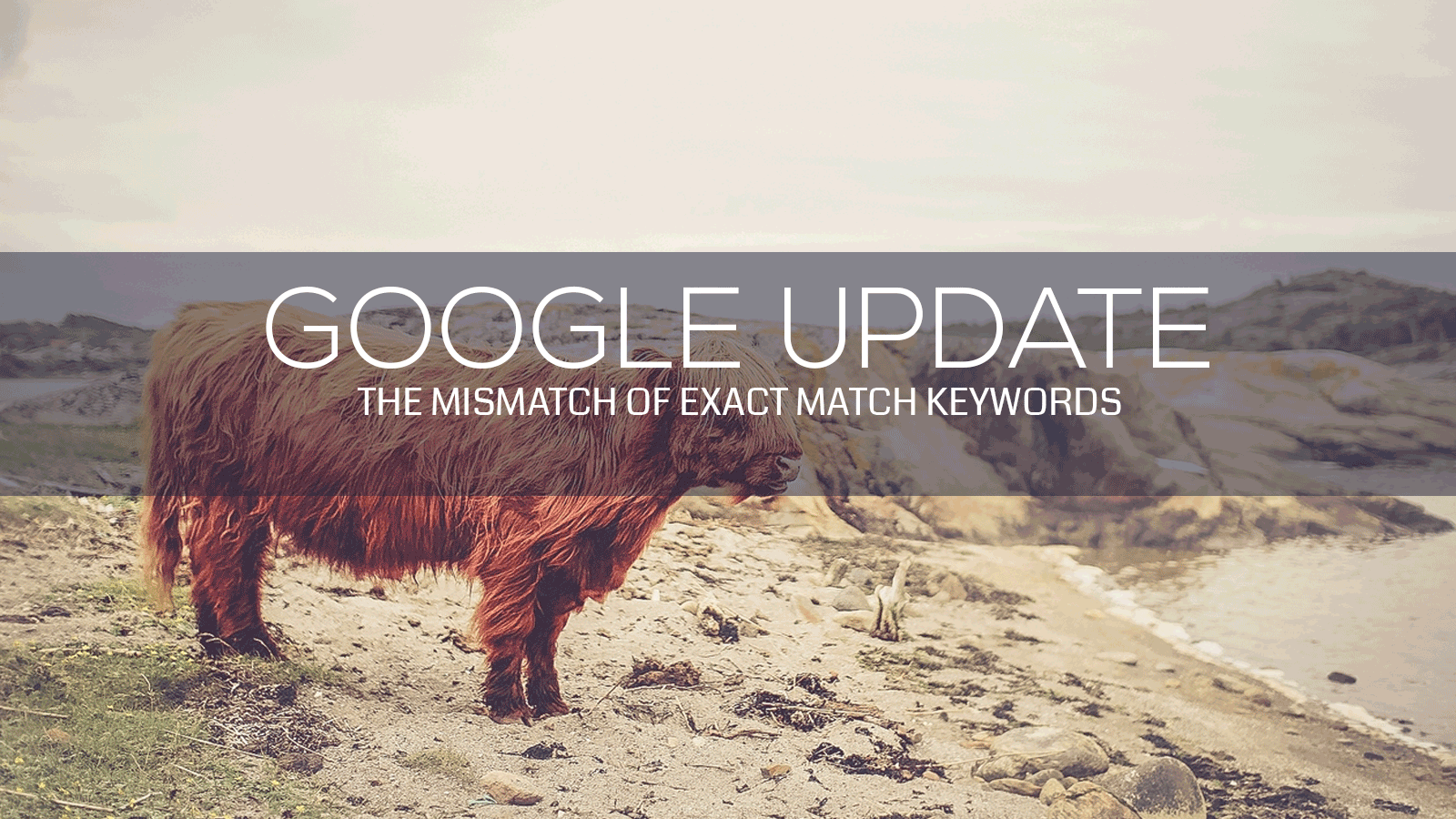Google recently announced (August 14th, 2014) they will no longer be allowing advertisers to use exact match keywords to drive their PPC campaigns as of September. Bidding on exact match keywords has always been the primary focus for large businesses and digital agencies looking to maximise return on investment per individual keyword/keyword phrases. It allowed PPC specialists to drive investment towards exact match keywords that convert well. There are positives and negatives to take away from this recent announcement depending on what side of the fence one sits on. It’s thought Google wants to level the playing field between big advertisers and their smaller adversaries who don’t have the same level of expertise in digital marketing. Over 95% of online independent advertisers look after their own campaigns but most lack the expertise on how to maximise ROI. It’s widely anticipated these smaller advertisers stand to benefit from the changes by gaining more traffic at a reasonable quality level. For example:
- Hairdresser in Manchester
- Hairdressers in Manchester
- Hairdressing in Manchester
- Manchester Hairdresser
- Manchester Hairdressers
- Manchester Hardressers*
*intentional miss-spell The keywords above will now likely be triggered as close matches to one keyword phrase in an Adwords account, this will lead to an increase in traffic relevant to the small business. The negatives will more than likely hit the larger businesses and digital agencies who put in a lot of time and effort into their advertising campaigns, analysing all relevant variant keywords, setting up individual bidding per keyword, creating converting copy for individual keyword groups etc. All this will become irrelevant; giving the smaller guys a better chance to compete for sales. There is a slightly complex theory Google will benefit from higher bidding prices due to the loosening of target keywords. Unique plural only nouns need to be considered, as these will throw phrase match keywords into impressions that are irrelevant and will therefore bring down CTR, negatively impacting quality scores, bringing about increased bidding. Prime examples of unique plural only nouns:
- Arm / Arms
- Ash / Ashes
- Custom / Customs
- Fund / Funds
- Glass / Glasses
- Good / Goods
- Letter / Letters
- Premise / Premises
- Tight / Tights
As an example, users searching for “Business Premise” or “Business Premises” are searching for two different things, but should one of these keywords be in the advertisers AdWords account, the ad would be triggered regardless of user intent. What can you do? Reverse engineer the way advertising campaigns are run. Although exact match keywords will no longer be available to bid on, negative exact match keywords remain, making it possible to strike out the keywords that don’t convert. This has always been good practice but will become even more so in the months ahead. This will not help with the bidding process but will surely help keep spending costs down. It will be interesting to see how the industry adjusts to Google’s new set of rules.

